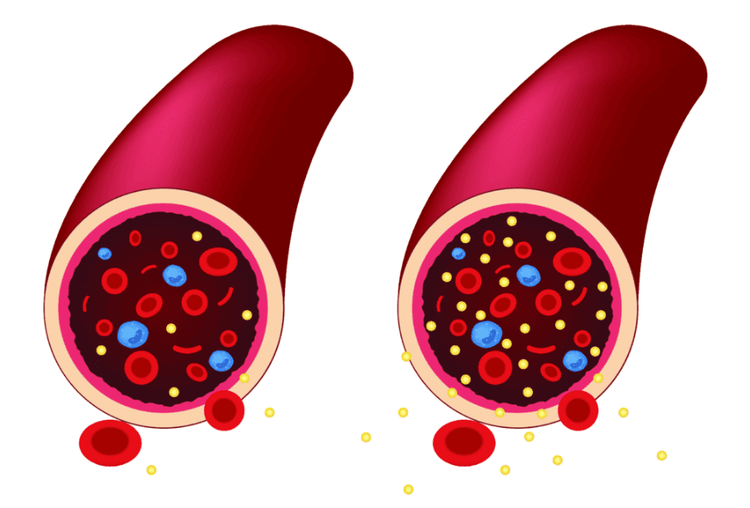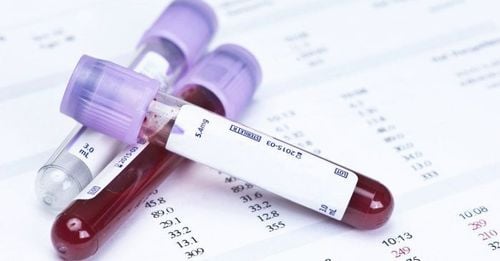This is an automatically translated article.
Taking diuretics is a way to remove excess water and salt from the body, but if taken in excess, it can cause a decrease in body fluid volume, leading to a drop in blood pressure, causing many side effects including: systemic symptoms such as dizziness, lightheadedness, fainting or coma.1. Is taking diuretics harmful?
Mechanism of diuretics acting on the kidneys to increase the amount of salt and water excreted from the body through the urinary tract. At the same time, diuretics help the artery walls relax more and blood flow more easily. Thanks to these two factors, the pressure on the arteries will be significantly reduced, bringing the blood pressure level back to a safe threshold.
However, when you take too much diuretics, it can cause a decrease in body fluid volume leading to a drop in blood pressure causing dizziness, lightheadedness, fainting or coma. Moreover, by increasing water excretion in the body, taking diuretics can cause chemical imbalances in the blood, such as increasing the excretion of electrolytes, reducing calcium and magnesium, and especially causing hypokalemia. .
In addition, diuretics can increase uric acid in the blood, increasing the risk of gout (typhoid).

Sử dụng thuốc lợi tiểu quá mức có thể gây chóng mặt
2. Side effects of diuretics
2.1 Fluid and electrolyte disturbances Hyponatremia, excessive increase or decrease in potassium, hypocalcemia and hypomagnesemia. These substances have a very important role in the body, especially for the nervous system - muscle. Severe disorders can lead to muscle weakness, numbness, limb twitching, arrhythmia, coma, convulsions or death if not detected and treated promptly. When you experience the side effects of this diuretic, you will feel tired, cramping, and bloated. When blood K+ decreases, there is a risk of digoxin toxicity.
2.2 High blood sugar For people with diabetes , due to the harmful effects of diuretics causing high blood sugar, it can aggravate diabetes.
For people with normal or undetected pre-diabetes blood sugar levels, excessive use of diuretics can increase the risk of diabetes leading to serious electrolyte disturbances, Blood sugar rises very high, easily leading to coma due to increased osmotic pressure.

Tăng đường máu sau khi dùng thuốc lợi tiểu
2.3 Hyperuricemia With the side effect of diuretics, when you use the drug, there is a risk of triggering an acute gout attack in people with a history of gout or if you are sick, it will make gout worse. more.
2.4 Causes tinnitus, irreversible deafness When using long-term high doses of furosemide loop diuretics, especially in the elderly, people with dehydration, kidney failure or when combined with aminoglycoside antibiotics. (streptomycin, gentamycin, kanamycin...) can cause damage to the VIII nerve causing irreversible deafness.
2.5 Disorders of liver function tests The harmful effects of diuretics are possible disturbances in liver function tests and the appearance of jaundice.

Các chỉ số xét nghiệm chức năng gan bị rối loạn
3. How to prevent side effects of diuretics
The choice of diuretic depends on the indication for treatment, on the desired sodium excretion concentration, on the duration of action of the drug, on the specific side effects of each drug and on the patient's renal function, Use diuretics only as prescribed by a specialist. In the treatment of hypertension, doctors often choose thiazide diuretics with moderate and long-lasting sodium excretion. When treating edema, the choice of drug will depend on the extent to which salt excretion is required. When rapid action is required, especially in pulmonary edema, drugs that act in the loop of Henle are often used orally and intravenously. In renal failure, one can only use diuretics acting in the loop of Henle and not other drug classes. When being treated with diuretics, do not arbitrarily use other drugs at the same time but consult your doctor. Or, you must inform your doctor about the drugs you are taking when you are prescribed diuretics so that the doctor can prescribe the appropriate medicine.

Trước khi sử dụng thuốc, bạn nên tham khảo ý kiến của nhân viên y tế về tác dụng phụ
When using diuretics, people taking diuretics should eat a lot of bananas, drink a lot of orange juice to supplement potassium. When using diuretics, if you see symptoms of cramps, muscle weakness, fatigue, extreme thirst, restlessness, and rapid pulse, you should seek medical attention immediately, because it may be a sign of potassium loss due to diuretic use. Meanwhile, potassium plays a very important role in heart contraction and maintaining good health.
Please dial HOTLINE for more information or register for an appointment HERE. Download MyVinmec app to make appointments faster and to manage your bookings easily.













